Inventory of relevant SOGIESC case law and pending cases before the ECtHR and CJEU 2025

In order to focus our strategic litigation efforts across Europe to fully protect and advance LGBTI rights, with this inventory ILGA-Europe wants to support members and partners across the region to identify trends and gaps in protection at the European level, which can commonly be tackled through litigation. The inventory can further strengthen cooperation and help guide our work and efforts by others in bringing forward and supporting strategic cases.
This inventory and continuous assessment of the European landscape informs ILGA-Europe’s ongoing engagement in strategic litigation through identification and support of strategic opportunities.
This inventory covers relevant SOGIESC cases from 2010 up until December 2024.
Joint statement welcoming EU’s top court judgment to correct a trans man’s gender identity data in national registry
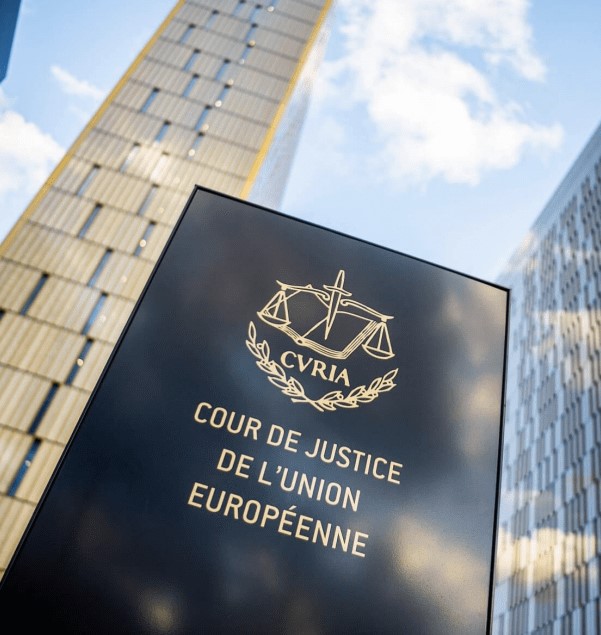
Today, the European Court of Justice (CJEU) issued a judgment in the case of Deldits (C-247/23), stating that national authorities responsible for keeping public registers (such as asylum registers) should correct data on gender identity when it is inaccurately recorded. This decision carries significant implications for advancing human rights protections in the EU, at a time when trans people and human rights in general are under massive attack.
Background
A trans refugee in Hungary seeks legal gender recognition
This case concerns an applicant who was granted refugee status in Hungary based on a well-founded fear of persecution in his country of origin because of his gender identity. The applicant requested the correction of his gender marker and name on the national asylum registry (as it reflected his name and sex at birth) under Article 16 of the EU’s General Data Protection Regulation (GDPR) on the basis that the data was inaccurate.
A legal paradox: Granted asylum but denied recognition
Despite the Hungarian authorities granting the applicant refugee status on this ground, he found himself in a paradox: his gender marker was registered incorrectly, and he could not correct it as there is no legal framework regulating the conditions for legal gender recognition (LGR) in the country.
Hungary’s ban on legal gender recognition
This case is a pivotal moment in the ongoing battle for the rights of trans people in Hungary, which has banned LGR for citizens in 2020, whilst refugees never had access to LGR. Moreover, Hungarian authorities requested proof of surgery as a precondition to change the applicant’s gender marker – a practice that the European Court of Human Rights has declared to be in violation of the right to respect for private and family life as protected by Article 8 of the Convention since 2017.
GDPR and human rights
The case raised several important questions for the CJEU: whether the GDPR mandates the correction of gender markers in national registries upon request. If so, does this request require evidence? If so, does it need to include proof of surgical intervention?
CJEU ruling strengthens trans rights and data accuracy rules
Today’s CJEU ruling addresses these questions, and is very favourable. It confirms that the right to rectification under Article 16 GDPR, taken in conjunction with the principle of data accuracy under Article 5(1)(d) GDPR, require authorities, without undue delay, to correct personal data concerning gender identity which is held in public registers when such data is inaccurate.
Importantly, the Court stated that if the purpose of collecting personal data is to identify the individual, the data should refer to the person’s lived gender identity, and not the identity assigned to them at birth. In that respect, the Court underlined that a Member State cannot invoke the absence of a domestic procedure for LGR to limit the exercise of the right to rectification under GDPR.
Secondly, the Court clarified that a person may need to provide reasonable proof to correct inaccurate data, but Member States cannot require proof of ‘gender reassignment surgery’ “under any circumstances”. The Court stated that such a requirement goes against the right to personal integrity (Article 3) and the right to privacy (Article 7) of the Charter of Fundamental Rights.
The Hungarian authorities must now allow for a change of gender marker in the Asylum Registry and all other national registries. However, instead of patchwork procedures by each data controlling entity in the country, the Hungarian government needs to urgently create legal certainty and set up a legal framework for quick, transparent and accessible procedure for LGR, where individuals can adapt their documents to match with their gender identity. The European Court of Human Rights already found that Hungary violates the European Convention on Human Rights for failing to allow such procedure (R.K. v. Hungary, 2023) including for trans refugees (Rana v Hungary, 2020).
The CJEU ruling is also binding upon national authorities keeping a public register across all EU Member States.
Reactions
TGEU Expert Advisor, Richard Köhler, comments: “Trans people deserve accurate personal data—full stop. Today’s Court ruling sends a clear message: while Member States control legal gender recognition processes, they must respect EU law. Evidence can be requested, but surgical proof? Absolutely forbidden.
This isn’t just about refugees—it’s also about asylum seekers and citizens. Where public records are kept to identify people, Member States need to recognise that a person’s real identity is what matters, not labels given at birth. The Court couldn’t be clearer: surgery requirements and forced sterilisation violate EU data protection law. Now, Member States must take action. No more delays. No more excuses. The message is simple: recognise people’s identities without invasive demands. The EU Commission must support Member States with implementation and take decisive action against those who continue to deny trans people their fundamental rights.“
ILGA-Europe Advocacy Director, Katrin Hugendubel, said: “This judgment is a significant step forward for the rights of trans people, including refugees, in the EU – especially in Member States without any legal framework for LGR. At a time when the rights of trans and LGBTI people in general are under constant threat, we call on Member States to implement this ruling by ensuring that their frameworks for collecting and storing personal data are GDPR and fundamental rights compliant. We also call on the EU Commission to actively monitor the implementation of this judgment and to encourage Member States to bring their frameworks for LGR in line with international human rights and EU law standards.”
According to Gábor Győző, the attorney representing the applicant in the proceedings on behalf of Háttér Society and the Hungarian Helsinki Committee, “it is very important and welcomed that the Court not only addressed the specifics of the case, but also assessed the Hungarian legal framework and the protection of the rights of trans people in a broader context. Moreover, this decision also serves as a guideline for all other Member States on this issue.”
“Trans people have been subject to constant governmental harassment in recent years. The judgment is a ray of hope that they cannot be deprived of their rights and denied their existence,” added Eszter Polgári, Director of the Legal Program of Háttér Society.
Joint calls to action
We call on EU governments to adhere to this CJEU ruling and proactively check their national procedures for a GDPR and European human rights compliant framework that allows individuals to quickly, transparently and in an accessible way update gendered data that is held on them. As EU data protection rules apply to anyone in the EU, they also need to ensure data of asylum seekers alongside refugees can be easily updated to reflect a person’s gender identity.
We call on the EU Commission to monitor the implementation of the Deldits case into national case law and adherence of the national authorities to the final decision. Failure in compliance needs to lead to infringement procedures. National Data Protection Authorities (DPAs) should equally monitor implementation and issue fines for non-compliant data controllers.
For a uniform understanding and application across the EU on both the Deldits and Mousse CJEU case law, we call on the Commission to provide practical guidance and the possibility to exchange for Member States and data controllers on implementation.
As EU data protection rules also apply to private actors, any organisation collecting, storing, or processing personal data on names and gender markers needs to check their processes for allowing correction of the data that they hold.
We urge EU institutions and Member States to ensure trans people have access to quick, transparent and accessible paths to LGR.
Congratulations to everyone involved for this incredible victory. Your efforts and dedication will make a huge impact on trans lives across the EU.
ILGA-Europe and TGEU provided support in the CJEU procedure to Háttér Society, which represented the applicant together with the Hungarian Helsinki Committee in this case.
Context
Today’s judgement comes on the heels of a groundbreaking data protection case strengthening the rights of non-binary people, Mousse (C-394/23). In this judgment, the CJEU found that the collection of gendered civil tiles (Mr/Mrs) when purchasing train tickets by a railway company is not necessary for providing transportation services and hence not compliant with the GDPR principle of data minimisation.
EU data privacy rules
The GDPR is Europe’s powerful privacy law that protects people’s personal data by giving them control over how private and public organisations collect, use and store their information. It applies to all organisations handling EU residents’ data anywhere in the world, and goes far beyond cookie settings—it ensures organisations get proper consent, minimise data collection, secure information properly, and allow people to access, correct, or delete their own data.
Today’s judgment particularly addresses national authorities and public registers. Therefore, it goes beyond asylum registers and may well have implications for national civil registries and how such personal data can be corrected.
The Court reaffirmed that regulation of legal gender recognition continues to be within the remit of Member States, but that they must respect EU data protection and fundamental rights when doing so.
Read Háttér Society’s press release here.
European court rules teacher’s dismissal over gay blog violated free speech

The European Court of Human Rights rendered a judgement in a case where the Polish authorities fired a school teacher for writing on a blog for adult gay men featuring some sexually explicit content.
In February, in the case of P. v. Poland, the European Court of Human Rights (ECtHR) ruled that Poland violated Article 10 of the European Convention on Human Rights (freedom of expression). The case involved a secondary school teacher who was dismissed for writing an illustrated diary under a pseudonym on a public blog intended for adult gay men, which included some sexually explicit content.
The authorities considered that the applicant’s blog was an affront to the domestic social mores prevailing in Poland because it talked in explicit terms about sexuality. The applicant argued that the authorities had wrongly perceived his blogging activity as attesting to his lack of morals and posing a threat to the ethical education of his students, and that the sanction imposed on him was disproportionate in the circumstances of the case.
ILGA-Europe, together with KPH (Campaign Against Homophobia) and PSAL (the Polish Society of Anti-Discrimination Law) filed a third-party intervention in the case. The intervention informed the European Court about the situation of LGBTI people in Poland and highlighted the States’ obligations under international law and the European Convention on Human Rights (ECHR) framework. It emphasised the States’ obligation to provide effective measures to protect LGBTI persons’ rights to private life and freedom of expression, and to unmask possible discriminatory motives in case of interference with these rights.
While the European Court considered that there was no proof that the applicant’s sexual orientation had been the real reason for his dismissal, it still took into account the fact that the blog depicted same-sex relations when ruling on the breach of his freedom of expression. The Court relied on our intervention, which reminded that the Council of Europe’s Commissioner for Human Rights and the EU Fundamental Rights Agency reported that the prevailing social attitude towards LGBTI persons in Poland was negative. Owing to this, the Court considered important to refer to its previous ruling in the Macatė v Lithuania case, which found a violation of Article 10 as a result of restrictions on the distribution of a book that depicted a same-sex marriage.
The Court considered that the applicant’s dismissal was disproportionate, especially as he did not have any previous record of disciplinary sanctions. It concluded that the Polish authorities did not provide relevant and sufficient reasons for dismissing the applicant from his position as his blogging activity did not threaten the protection of morals of minors in a manner justifying the sanction imposed on him.
According to Annamaria Linczowska, Advocacy and Litigation Officer at Campaign Against Homophobia: “The case itself was a vivid example of discrimination against LGBT+ persons in Poland that time. Using a very serious mechanism – the teacher’s dismissal – the school and later, the commissions, interfered with the teachers’ freedom of speech, his right to be vocal in public about same-sex relationships. The case illustrates the obstacles and discrimination LGBT+ people face in the workplace and in education in Poland. Even though we share the ECtHR’s view regarding the country’s positive obligation to introduce legal tools to ensure respect of private life and freedom of expression, KPH believes that in this case it should have considered also the violation of articles 8 and 14 of the Convention by asserting the fact that applicant’s sexual orientation was a real reason for his dismissal”.
See KPH’s full statement here.
According to Marie-Hélène Ludwig, Senior Strategic Litigation Officer at ILGA-Europe: “We are glad that the Court took into account our joint third-party intervention describing the negative social attitude towards LGBTI persons prevailing in Poland to rule that the domestic authorities breached the applicant’s freedom of expression by dismissing him from his position.”
Joint statement welcoming judgement on Russia’s failure to protect the privacy of personal data
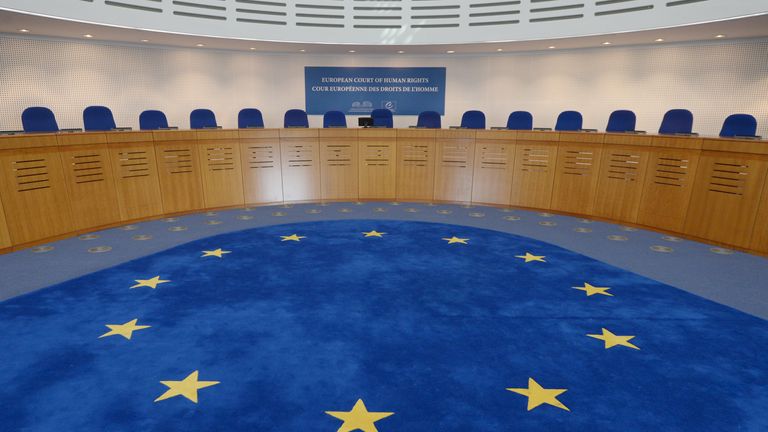
ILGA-Europe and the AIRE Centre welcome the judgement from the European Court of Human Rights in the case of Bazhenov and others v. Russia
Last week, in the case of Bazhenov and others v Russia, the European Court of Human Rights found a violation of Article 8 (right to private and family life) together with Article 14 (prohibition of discrimination) ECHR.
The applicants in this case are a lawyer who provided assistance in a number of high-profile criminal cases related to hate crimes against individuals, and a same-sex couple. The case concerns the disclosure of the applicants’ personal data, including their names, addresses and information about their sexual orientation, on openly homophobic public pages on social networks.
The applicants argued that this exposed them to elevated risks of harassment and made them fear for their lives and health, for the safety of their relatives and employees and for their professional activities. As such, they complained that the national authorities failed in their obligation to ensure effective respect for their private lives (Article 8 ECHR) and protect them from discrimination (Article 14 ECHR). They also complained under Article 13 ECHR that they had no effective remedy as the authorities failed to open a criminal case and conduct an effective investigation to respond adequately to those homophobic incidents.
Sharing of personal information should be a personal choice
ILGA-Europe together with the AIRE Centre submitted a third-party intervention in this case, stating that the sharing of personal information, including sexual orientation, should be an individual’s choice and that there should be safeguards to prevent the disclosure of such personal data. Moreover, national authorities have a positive obligation to conduct an effective investigation into an alleged interference with an individual’s private life, and a person’s sexual orientation should form part of the authorities’ considerations. Finally, we provided an analysis of the risks of discrimination, convictions by authorities and hate crimes that LGBTI individuals face through the non-consensual sharing of information and personal data.
The Court found that the authorities had indeed failed to offer adequate protection in respect of the applicants’ private lives and to protect them from discrimination. Importantly, the Court considered that “the domestic authorities were confronted with prima facie indications that the (…) disclosure of the applicant’s private data without their consent, including information about their sexual orientation, were driven by discriminatory attitudes against LGBTI community”. The Court found that this required an “effective investigation capable of elucidating the homophobic motive behind the breach of the applicants’ privacy and of identifying and, if appropriate, adequately punishing those responsible”.
A particularly vulnerable group, needing heightened protection
Furthermore, the Court recalled that “gender and sexual minorities require special protection from hateful and discriminatory speech because of the marginalisation and victimisation to which they have historically been, and continue to be, subjected.” It noted in this respect that the Russian LGBTI community can be regarded as a particularly vulnerable group, needing heightened protection from stigmatising statements.
Therefore, the Court ruled that domestic authorities had failed to discharge their positive obligation to respond adequately to the non-consensual dissemination of the applicants’ private data, including the information on their sexual orientation, by private individuals, and to investigate in an effective manner whether the dissemination of the data in question had been motivated by homophobic attitudes.
Welcoming the judgement, ILGA-Europe’s Senior Strategic Litigation Officer, Marie-Hélène Ludwig said: “This is a strong judgment in which the Court makes clear that States have a positive obligation to ensure respect for the right to private life, even when this concerns relationships between individuals. We welcome the Court’s observation that preventing and investigating the non-consensual dissemination of private data on one’s sexual orientation is particularly important in view of the vulnerability and risks faced by the LGBTI community in Russia at the moment.”
Last week, the Court also found violations of Article 8 (right to respect for private and family life) and Article 10 (freedom of expression) ECHR in the case of Klimova and Others v. Russia. The case concerned the applicants’ convictions for an administrative offence and/or the blocking of access to their websites or webpages on social networking sites, including one of the oldest and largest LGBTI websites in Russia, for “promoting homosexuality among minors”. The Court concluded that there was an interference with the applicants’ right to freedom of expression. One of the applicants also complained that the security services collected user data related to her personal social networking account and to the social networking community administered by her. The Court found that this amounted to an interference with the applicant’s right to respect for her private life.
Joint statement welcoming CJEU judgment to halt unlawful gender title collection

The EU Court of Justice has judged that it is unlawful for France’s national railway company to force passengers to choose between ‘Mr’ and ‘Ms’ when purchasing train tickets.
Today, the CJEU issued a judgment in the case C-394/23 initiated by the Mousse Association, saying that it is unlawful for a railway company to collect a customer’s gender marker, saying this personal data is not necessary for the purchase of a train ticket and may create a risk of discrimination on grounds of gender identity.
The judgment concerns a case initiated by Mousse representing 64 individuals against France’s national state-owned railway company (SNCF) practice of forcing passengers to choose between the civil titles “Mr” or “Ms” when purchasing train tickets. The train company does not offer a third option and alleged that this data was necessary to personalise its commercial communication based on customers’ presumed gender identity.
The case relies on the General Data Protection Regulation (GDPR)’s principles of data minimisation and accuracy, as well as the fundamental EU law principle of non-discrimination.
The French court asked the CJEU to clarify if common practices in civil, commercial, and administrative communications can help determine whether data collection meets the GDPR’s requirements for being adequate, relevant, and necessary under Article 5(1)(c), and lawful under Article 6(1)(b) and (f). If so, collecting only customers’ titles like “Mr” or “Ms” might be considered necessary and compliant with the principle of data minimisation.
The CJEU was also asked whether the right of individuals to object to the use of their personal data by relying on their specific situation under Article 21 GDPR should be a determining factor in assessing the necessity of the mandatory data collection.
THE CJEU DECISION
The CJEU recalled that the principle of data minimisation requires that collected data be adequate, relevant and limited to what is necessary for the purposes for which those data are processed. The processing of personal data is lawful only if it is necessary for the performance of a contract or for the purposes of a legitimate interest
In this respect, the Court ruled that the personalisation of commercial communications based on presumed gender identity according to a customer civil title is not necessary as it is not objectively indispensable to the performance of a rail transport contract, contrary to what the SNCF and the French State alleged in this case. The Court stated that the railway company could opt for generic and inclusive terms, which are not linked to presumed gender identity, when addressing customers, as this would be a less intrusive solution.
Additionally, the Court rebutted SNCF’s argument that it pursued a “legitimate interest” as it did not comply with the conditions under GDPR to do so. Notably, collecting gender markers cannot be regarded as necessary when the fundamental freedoms and rights of customers prevail over the legitimate interest of data processors.
Importantly, the Court ruled that processing civil titles of customers can in some cases create a risk of discrimination on grounds of gender identity. This is the first time that the CJEU evokes the fundamental EU law principle of non-discrimination to protect the ground of gender identity for trans and non-binary people.
IMPACT
The importance of this judgement therefore extends beyond the applicant’s individual circumstances. All public and private organisations that are required to comply with GDPR in the EU will need to comply with this judgment and stop collecting gender markers when it is not strictly necessary in the light of the purposes for which this data is processed.
The judgment also underscores the broader issue faced by trans and non-binary people who are constantly forced to choose in their everyday lives between two options that do not correspond to their identity. Also, binary trans people, whose identity documents do not match their gender identity, will benefit from fewer mandatory forms asking for a gender marker, when it is not necessary to the service or contract at hand.
According to the EU Fundamental Rights Agency LGBTI survey 2023, almost two-thirds (64 per cent) of trans respondents felt discriminated against in the year before the survey, followed by more than half (51 per cent) of non-binary and gender-diverse respondents, where every second respondent experienced discrimination in the same period,. The survey also found that 15 per cent of non-binary and 35 per cent of trans people said they experienced discrimination when they had to show their ID. In contrast, only one per cent of cisgender endosex respondents reported such issues. Non-binary people make up the largest compound (65 per cent) of the trans community and tend to be younger.
REACTIONS
According to the claimant’s legal representative, Etienne Deshoulières: “The CJEU’s decision marks a significant shift in the relationship between the State and citizens. Previously, the State “owned” the data in civil-status records and prohibited people from modifying that data, except in exceptional circumstances. Now, each citizen “owns” their personal data and grants the State permission to process it within the limits set by the GDPR, including the principles of minimisation and accuracy. The binary distinction of gender under the law has long been the cornerstone of the system that discriminates against sexual and gender minorities. If this legal binary no longer exists, then a broad array of legal discriminations disappears. It would represent the culmination of decades of advocacy for LGBT+ rights.”
TGEU Expert Advisor, Richard Köhler, comments: “Sixty-five per cent of trans people in Europe identify as non-binary, a young and mobile group forced to navigate systems that don’t match their identity. This case signals progress: less paperwork, fewer binary boxes, and a future where EU law finally recognises and protects non-binary and trans lives. The next generation deserves nothing less.”
ILGA-Europe Senior Strategic Litigation Officer, Marie-Hélène Ludwig added: “Today’s ruling is crucial in putting an end to the discrimination on the grounds of gender identity faced by non-binary persons and all who do not identify within the gender binary, and who are forced to choose in their day-to-day lives between two options that do not correspond to their identity. This judgment will have far-reaching effects, as it clearly states that collecting gender markers when it is not strictly needed is not only unlawful but also potentially discriminatory. The judgement clearly sets an obligation for all businesses, organisations and public services to do away with unnecessary binary data collection, according to EU law.”
ILGA-Europe and TGEU provided support to Association Mousse and its lawyers, Etienne Deshoulières from Deshoulières Avocats and Johan Heymans, Yasmina El Kaddouri and Delphine Holemans from VS Advocaten, in this case.
Read Association Mousse’s full statement here.
Joint statement on today’s long-awaited judgment from the European Court of Human Rights on violations of LGBTI human rights in Armenia

ILGA-Europe and TGEU celebrate the judgement of the European Court of Human Rights in the case of Minasyan and Others v. Armenia, upholding the rights of victims of homophobic and transphobic hate speech.
Today, the European Court of Human Rights issued a judgement in the case of Minasyan and Others v. Armenia. The case was brought forward by 14 Armenian human rights defenders and activists who supported and/or belonged to the LGBTI community and were victims of homophobic and transphobic hate speech. The Court found a violation of Article 8 of the European Convention on Human Rights (right to private and family life), taken alone and in conjunction with Article 14 of the Convention (prohibition of discrimination).
The case concerns the publication of newspaper articles in 2014 that contained discriminatory language and incitement to discrimination against the applicants due to their association with the LGBTI community and/or their perceived sexual orientation or gender identity, and which included links to the applicants’ social media profiles. The article followed the applicants’ comments challenging Armenian Eurovision Song Contest jury members’ statements criticising the winner that year, Conchita Wurst. The applicants instituted civil proceedings against the newspaper but the Armenian courts dismissed the case and ignored the allegations of discrimination based on actual or perceived sexual orientation and gender identity.
The European Court ruled that the publications in question propagated hatred, hostility and discrimination against a minority, the LGBTI community, which was one of the main targets of widespread hostility, hate speech and hate-motivated violence in the country. It also confirmed that the publications were meant to incite intolerance and hostility against the applicants, with the clear intention of intimidating them and causing them real harm. The Court had no doubt that such expressions affected the applicants’ psychological wellbeing, dignity, and reputation and constituted serious attacks on their rights guaranteed by the Convention.
The Court also observed that there was only a civil remedy available to the applicants, and while in theory, such remedy was capable of providing effective protection from homophobic hate speech, it had doubts about its effectiveness in practice. The Court found that the domestic courts failed to balance the competing interests between the journalists’ right to freedom of expression and the applicants’ right to respect for their private life. As a result, the Court found that the domestic courts failed to recognise the authors’ hostile tone and intentions and the impact that his statements had on the applicants’ Article 8 rights. The Court ruled that by doing so, the domestic courts failed to protect the applicants against hate speech and to address the discriminatory nature of the hateful statements.
ILGA-Europe and TGEU jointly filed a third-party intervention in this case submitting that
- homophobic and transphobic statements constitute hate speech that violates Convention rights due to their humiliating and stigmatising effect;
- States have a positive obligation under the Convention to protect against hate speech on the basis of sexual orientation and gender identity
- and that LGBTI persons and affiliates in Armenia are prevented from seeking redress against hate speech and continuously struggle to enjoy equality due to the lack of adequate legal framework and the hostile attitudes against the LGBTI community.
According to Hasmik Petrosyan, Lawyer at Pink Armenia: “This is already the second judgement by the ECtHR which states that Armenia has failed to provide effective protection for LGBT people against hate speech. Since the judgement on the case Oganezova v. Armenia, for two and a half years, the State could not provide evidence that the Criminal Code article on liability for public calls to violence is being effectively applied in practice. At the same time, the Government has been discussing the anti-discrimination law for almost ten years and the draft still lacks effective mechanisms to protect LGBT people. Pink Armenia will be engaged in the monitoring of the implementation of the judgment.”
TGEU’s Senior EECA Programme Officer, Daniyar Orsekov, said: “TGEU welcomes the judgement of the European Court of Human Rights on Armenia where trans people have little to no legal protections. At a time when anti-LGBTI sentiment is being enshrined in law and therefore further legitimised in the Caucasus, this judgement sets an important legal precedent that can inspire activists to pursue justice and encourage courts in Armenia and the region to uphold the rights of LGBTI communities. In environments where hate speech is allowed to flourish, acts of hate-fuelled violence are not far behind. We call on the Armenian authorities to recognise homophobic and transphobic speech as hate speech and protect LGBTI communities.”
ILGA-Europe’s Senior Strategic Litigation Officer, Marie-Hélène Ludwig, added: “This is a long-awaited judgment that makes clear that States should provide effective protection against homophobic and transphobic hate speech not to foster impunity. We trust that Armenian authorities will put in place the necessary legislative measures to explicitly prohibit discrimination on the grounds of sexual orientation and gender identity and bias-motivated crimes to prevent similar cases from taking place in the future.”
Read Pink Armenia’s full statement on the judgement here: https://pinkarmenia.org/en/news-events/echr-blacklist/
Lithuanian Court Declares anti-LGBTI law unconstitutional
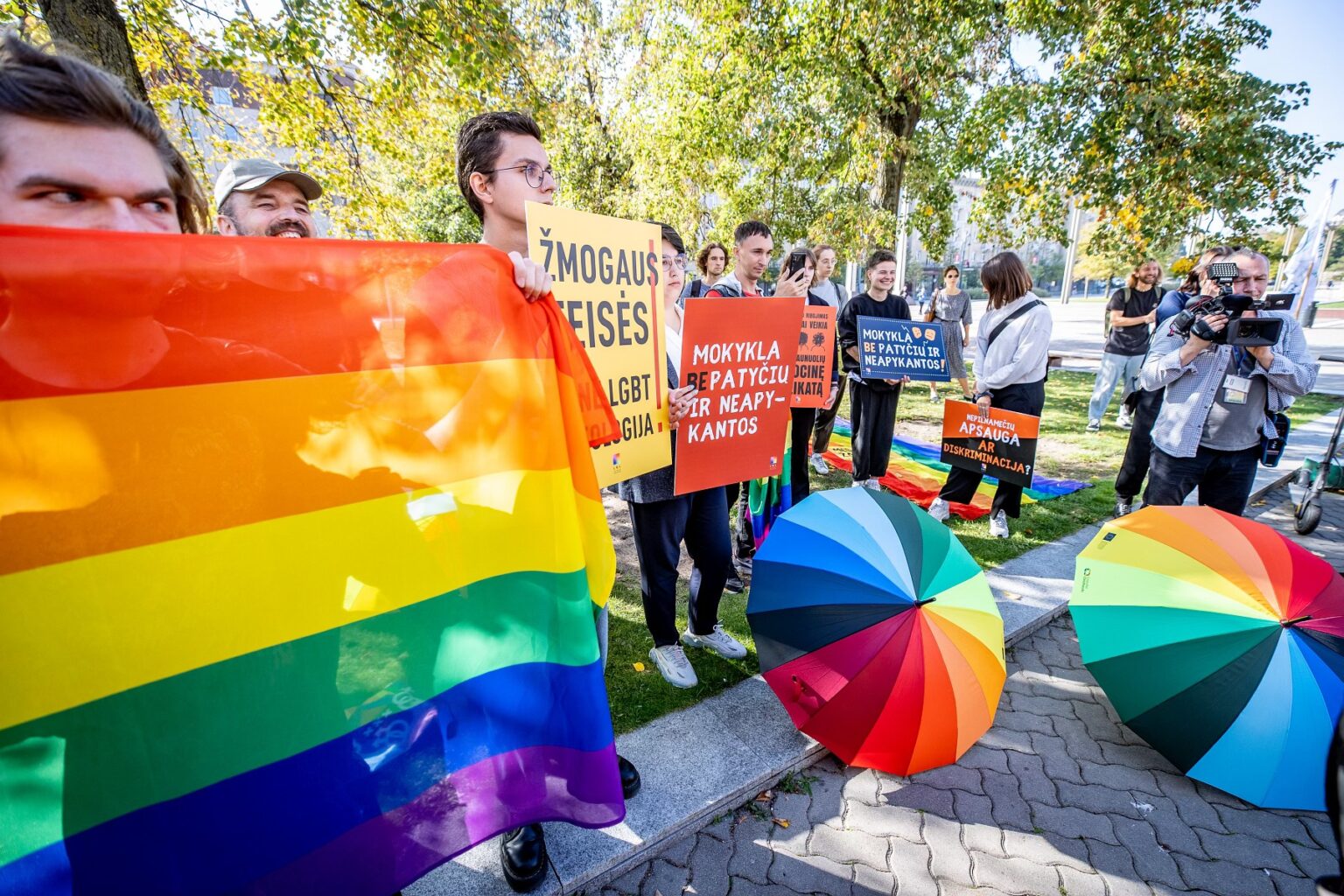
In a significant decision yesterday, Lithuania’s Constitutional Court ruled that a 15-year long ban on public depictions of LGBTI families should be repealed.
The Constitutional Court of Lithuania has declared the anti-LGBTI provisions of the Law on the Protection of Minors from Negative Effects of Public Information unconstitutional. These provisions, in place since 2009, had prohibited the depiction of LGBTI families in the public sphere, effectively stifling representation at public events and in the media.
The decision follows the European Court of Human Rights’ 2023 ruling in Macatė v. Lithuania, which found the law to violate Article 10 of the European Convention on Human Rights, safeguarding the right to freedom of expression. ILGA-Europe supported this case through a third-party intervention alongside Article 19 and the International Justice Clinic.
ILGA-Europe in association with the Lithuanian Centre for Human Rights and the Human Rights Monitoring Institute also supported our member organisation, LGL, through a Rule 9 submission to the Committee of Ministers of the Council of Europe concerning the implementation of the Macatė judgment.
The court’s reasoning empahsizes that:
- Information about diverse family models cannot be deemed inappropriate for minors.
- Laws must uphold respect for human rights, dignity, equality, pluralism, and tolerance.
- Minors deserve access to information that fosters their development into mature, well-rounded individuals.
According to Katrin Hugendubel, Advocacy Director at ILGA-Europe: “This landmark ruling marks a significant step towards ensuring that the rights of LGBTI people are respected in Lithuania. With this ruling, the anti-LGBTI provisions become ineffective and cannot be applied anymore. This is another confirmation from a highest courts that such laws are a violation of human rights and other courts should follow suit.”
Find out more about the current situation of protection of human rights of LGBTI people in Lithuania, on our interactive Rainbow Map.
For further context and details, see LGL’s statement here.
Russia failed to respond adequately to politician’s homophobic verbal assault, European Court finds

The European Court of Human Rights has found that Russia’s failure to respond adequately to homophobic verbal assault and physical threats by a politician against LGBTI activists is in breach of their human rights.
Last week, in case Yevstifeyev and others v. Russia, lodged by victims of homophobic hate speech in Russia, the European Court of Human Rights found a violation of Article 8 of the European Convention on Human Rights (right to private and family life), together with Article 14 (prohibition of discrimination).
The applicants are LGBTI rights activists who participated as part of the LGBTI column in a rally against hatred in St Petersburg where they had to face homophobic insults and physical threats from a well-known politician and member of the St Petersburg Legislative Assembly, who attended the rally. He also spread false information concerning the applicants.
The applicants lodged criminal complaints but the authorities refused to register them, claiming the politician had allegedly merely expressed his personal opinion about the LGBTI community. The applicants also lodged an administrative offence complaint and a civil complaint, which were dismissed on the grounds that the statements did not amount to insult, as they were not directed against specifically named individuals.
The Court first confirmed that the applicants had been directly targeted by the verbal assault and that the statements at issue affected their psychological well-being and dignity, and therefore fell within the sphere of their private life.
As to the authorities’ refusal to register the criminal complaints, the Court found that the domestic authorities had failed to strike a fair balance between the applicants’ rights to respect for their private life and to be protected from discrimination on the ground of sexual orientation on one hand, and the public interest in protecting freedom of expression on the other hand.
Turning to the administrative complaint, the Court found that the domestic authorities did not provide relevant and sufficient reasons for dismissing the administrative complaints. Lastly, as regards the civil proceedings, the Court ruled that, by finding that the applicants were not affected by the contested statement, the civil courts had failed to acknowledge the applicants’ rights to respect for their private life and to protection from discrimination on the ground of sexual orientation. The Court made clear that, contrary to the civil courts’ rulings, the politician’s statements could not be construed in a neutral way and were openly homophobic, had been particularly aggressive and hostile in tone, and included physical threats against the participants in the rally.
As a result, the Court concluded that the domestic authorities failed to comply with their positive obligation to respond adequately to the verbal assault and physical threats motivated by homophobia directed against the applicants. It recalled its previous ruling that “failure to address such incidents can normalise hostility towards LGBTI individuals, perpetuate a culture of intolerance and discrimination and encourage further acts of a similar nature.” The judgment can be accessed here.
Top European Court holds hearing on Polish refusal to recognise same-sex marriage certificate
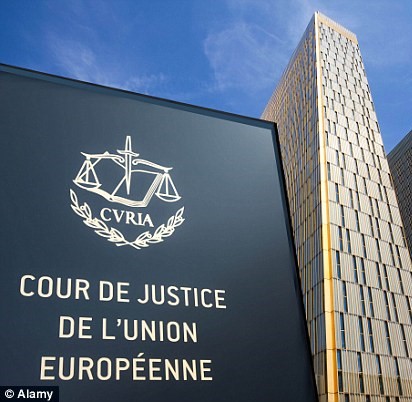
Case could establish critical precedent for the freedom of movement of same-sex couples within the EU
Yesterday, the Court of Justice of the European Union (CJEU) held a hearing in the case of Wojewoda Mazowiecki (C-713/23) concerning the recognition by Polish authorities of a same-sex marriage certificate obtained in another EU Member State.
The hearing follows Poland’s refusal to transcribe into the civil registry a certificate of same-sex marriage contracted in Germany between a Polish citizen and a Polish-German citizen. The couple currently resides in Poland.
The Court is asked whether this refusal conforms with the provisions of the Treaty on the Functioning of the European Union (TFEU) and of Directive 2004/38/EC, which establishes the rights of EU citizens to move and reside freely within the EU, read in conjunction with the European Charter of Fundamental Rights (ECHR), particularly the right to respect for private and family life and the prohibition of discrimination.
The Court is asked to follow the reasoning adopted in the recent judgment in the Mirin case, which confirmed that freedom of movement and other fundamental rights guaranteed under the Charter require authorities to transcribe changes to gender markers and forenames obtained in another EU Member State into their civil registries. By requiring Member States to amend entries in the birth certificates of EU citizens, Mirin ensures that the legal framework for registering and amending citizens’ data is consistent across EU Member States.
This would be a significant step towards the protection of same-sex couples across the EU, especially in light of recent European Court of Human Rights judgments in Przybyszewska and Others v. Poland which found the Polish state in violation of Article 8 (right to respect for private and family life) of the ECHR for failing to provide a specific legal framework recognising and protecting same-sex unions, and in Formela v. Poland which found that Poland breached the same provision for failing to recognise the relationships of two same-sex Polish couples married abroad.
According to Senior Strategic Litigation Officer with ILGA-Europe, Marie-Hélène Ludwig: “A positive ruling in this case would go beyond what the Court found in the Coman and Pancharevo cases and build on the Mirin judgment to recognise that transcription of marriage in civil registries is the only way to effectively ensure freedom of movement of same-sex couples in the EU, notably in countries still deprived of any legal framework recognising their union. This is especially important as marital status – just like one’s gender identity and sexual orientation – is a fundamental aspect of a person’s identity and personal status.”
According to attorneys Pawel Knut and Artur Kula from KMA Law Firm, the lawyers representing the applicants in the case: “The positive outcome of this case of may ensure that the transcription of the foreign marriage certificates of same-sex couples will be finally required from those Member States that still do not provide any form of legal protection for same-sex couples. We believe that this would also strengthen an effective protection for the rights of LGBT families around the EU”.
The Advocate General’s Opinion in this case will be rendered on 3 April 2025.ILGA-Europe is providing support to the applicants and their lawyers in this case.
Seeking justice and dignity for Uzbekistan’s LBQT women

Highlighting the hidden struggles of LBQT women in Uzbekistan amid calls for decriminalisation
Trigger warning: This story includes descriptions of torture and violence.
As the global community marks the 16 Days of Activism against Gender-Based Violence, the hidden struggles of LBQT women in Uzbekistan bring forward urgent calls for decriminalisation and systemic change. Uzbek activists, working tirelessly to amplify these voices, underscore that criminalisation of LGBT identities and strict patriarchal norms create conditions of unchecked violence and discrimination for lesbian, bisexual, and transgender women, who face isolation and danger within their own communities and families.
Among these stories of courage is that of Dinora (name changed), a transgender woman who has endured years of persecution and hardship. Detained under Article 120—a law criminalising “sodomy”—Dinora was tortured for simply living authentically. Her experience reflects the resilience demanded of Uzbekistan’s LBQT women. Despite her trauma, Dinora continues to advocate quietly, offering support to others in need.
Similarly, Gulnora, Zilola, and Manzura (names changed) navigate a society that views their identities as threats to family honour. Gulnora faced intense guilt and rejection, trapped between her true self and the societal expectations forced upon her by her family. Zilola, caught expressing affection for another woman, was forced into marriage and subjected to humiliating rituals to “cure” her. Manzura, who found some support within a loving relationship, still faces violent consequences from family members whenever her sexual orientation is revealed. Their lives embody the immense toll of societal and familial pressures, yet each woman has found ways to stand strong in the face of ongoing abuse.
Culture of impunity
The criminalisation of same-sex relations among men promotes a culture of impunity, embedding harmful stereotypes that target all LGBTI people. For LBQT women, especially, rigid gender expectations amplify their suffering, leaving them trapped between cultural norms and a legal system offering no recourse or protection. These women’s stories illustrate not only the isolation they face but also the extraordinary courage required to pursue dignity and self-acceptance.
As we share these voices during the 16 Days of Activism, we are reminded that the fight against gender-based violence must be inclusive of all women, regardless of sexual orientation or gender identity. Real justice and dignity for LBQT women in Uzbekistan demand urgent legal reform: the decriminalisation of same-sex relationships and protections for sexual orientation and gender identity within domestic violence laws.
For Dinora, Gulnora, Zilola, Manzura, and countless others, we must continue to call for a world where they can live freely and safely, without fear of persecution. Their courage in sharing these stories is a testament to resilience—a resilience that we hope will inspire lasting change.
For more on the experiences of LGBT people in Uzbekistan and the urgent call for decriminalisation, read the full report in English.
Joint statement: Kazakhstan risks further affiliating with Russia after MP requested to ban a leading LGBTI human rights group as “extremist”.
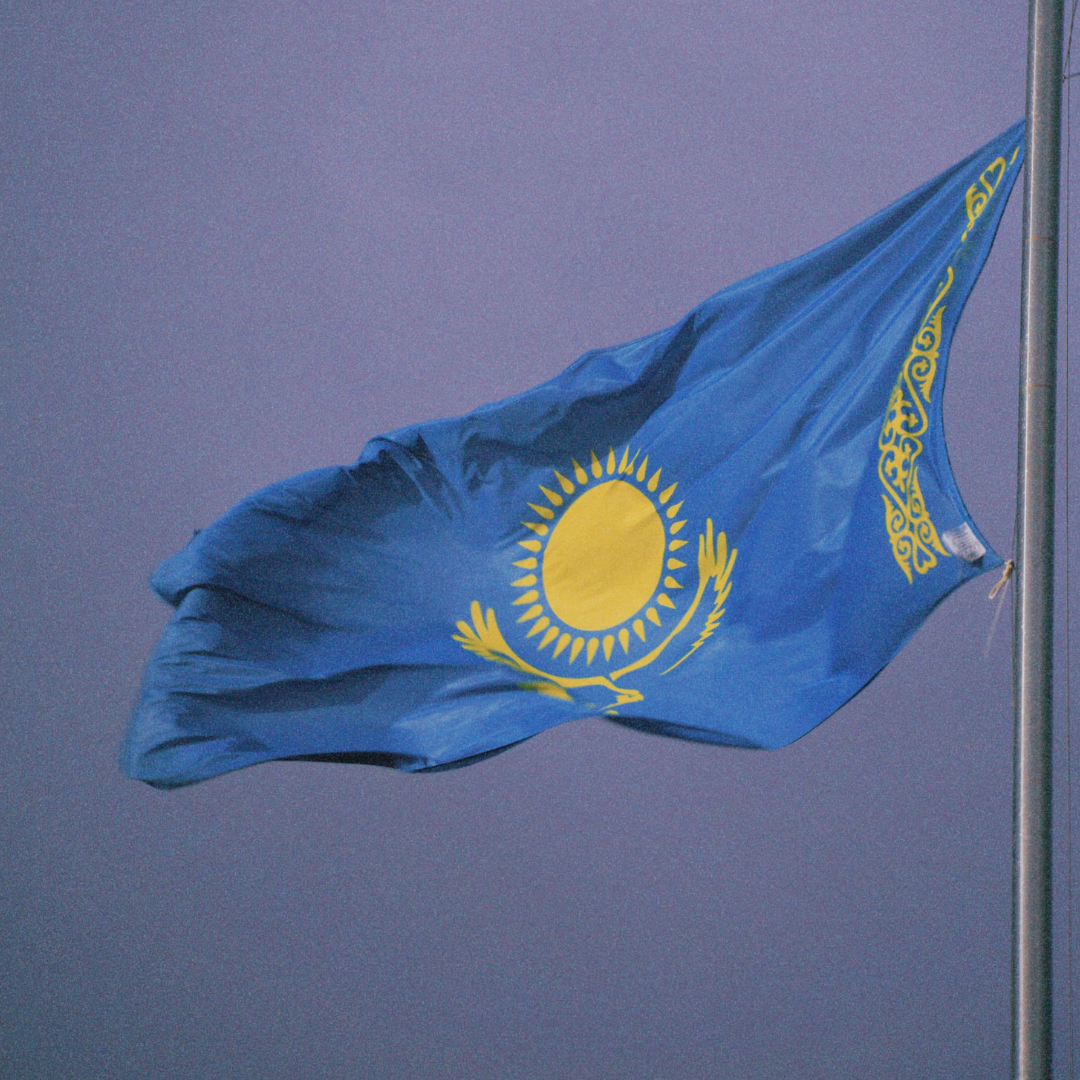
The recent initiative of a Member of Parliament of Kazakhstan to designate as “extremist” and ban an LGBTI civil society organisation, violates Kazakhstan’s human rights obligations and further affiliates it with Russia.
On 9 October 2024, Mr Rinat Zaitov, a member of the Parliament of Kazakhstan, speaking on behalf of the ruling party Amanat, formally requested the government to declare a leading LGBTI civil society organisation as extremist, which would lead to prohibition on its operation and the penalisation of its staff. This happened after a group of pro-Russian radical activists led by Bagila Baltabayeva, the leader of the Kazakhstan Union of Parents, stormed a private event organised by the feminist group Feminita for the LGBTI community in Almaty, Kazakhstan.
Baltabaeva and her group attempted to enter the venue where Feminita was holding the event and disrupt it. Earlier this year, the same group pushed for the petition to ban so-called “LGBT propaganda”, the public support of which was, according to independent sources, allegedly orchestrated by Kazakh officials. At the same time, Kazakhstan has been gradually introducing scrutiny on civil society organisations which are reminiscent of so-called “foreign agents” laws.
Political influence from Russia
State-facilitated violence against civil society activists and scapegoating of LGBTI people is part of the broader set of tools that also includes so-called ‘LGBT propaganda” laws and “foreign agents” laws. Such legislative attacks against human rights defenders protecting LGBTI individuals have a negative impact on the European Union, destabilising it by supporting claims from radical political forces within the EU.
The Government of Kazakhstan must not follow the path, which Russia and its allies have chosen in recent years. We call the Government of Kazakhstan not to declare Feminita or any civil society organisation supporting LGBTI people as extremist, and to duly protect civil society organisations from attacks from third parties, as well as to focus on actual public concerns.
We call on the European Parliament to unequivocally condemn this attempt to ban legitimate human rights activism, as well as any similar initiatives to use anti-extremist legislation against human rights defenders and civil society organisations.
We call on the European Commission to ensure that it is consistent with its own principles and values when cooperating with Kazakhstan’s government and that international commitments on human rights violations are respected across the board. In the event that Feminita or any other civil society organisation supporting LGBTI people is declared ‘extremist’ in Kazakhstan, we believe the European Commission will exercise continuity and that the new sanctions framework against Russia’s destabilising actions abroad will be fairly applied in a similar manner. We specifically call the European External Action Service and the EU Delegation to inform the Government of Kazakhstan about the potential consequences of such actions.
ILGA-Europe
Outright International
LSVD⁺ – Verband Queere Vielfalt
Hirschfeld Eddy Foundation
FRI – The Norwegian Organisation for Sexual and Gender Diversity
The Council for Global Equality
LGBT+ Denmark
Safety and rights for lesbians in Europe

On International Lesbian Day, we highlight the recent report by the Committee on Equality and Non-Discrimination, emphasising the need for targeted policies to protect lesbians from violence and discrimination across Europe
Lesbian, bisexual, and queer (LBQ) women face profound challenges rooted in discrimination, violence, and systemic inequality. The recent resolution and report adopted by the Parliamentary Assembly of the Council of Europe on 03 October highlights the urgent need for comprehensive policies that address these issues. Intersectional discrimination, where sexual orientation and gender intersect for LBQ women and the marginalisation that stems from that intersection, complicates the landscape of human rights that LBQ women should have access to, requiring specific actions to ensure their protection.
The report outlines that LBQ women, including trans and intersex LBQ women, experience multiple forms of violence and harassment, which can manifest in both public and private spheres. Violence ranges from physical assaults and psychological abuse to online harassment, often targeting women who do not conform to traditional gender roles. For instance, a survey by the EU Fundamental Rights Agency highlighted that 33% of lesbian women in Europe have avoided public spaces out of fear of violence or harassment, demonstrating the pervasive atmosphere of insecurity they face.
This violence is intensified for racialised LBQ women, who navigate an additional layer of discrimination. The report notes that racial stereotypes can subject them to heightened prejudice, affecting their access to healthcare, housing, and employment. Many racialised LBQ women report feeling pressure to conform to heterosexual norms, further marginalising their identities and experiences.
The effect of anti-gender movements
The increasing influence of anti-gender movements across Europe worsens these issues, aiming to silence and delegitimise the rights of LGBTI people, particularly LBQ women. The report emphasises the need for legislative frameworks that protect human rights, asserting that all women should have equal access to the protection and support guaranteed by international conventions, such as the Istanbul Convention. The resolution calls for Member States to enact anti-discrimination laws that address not only sexual orientation but also gender identity and expression and sex characteristics, creating an inclusive environment for all.
Education challenges prejudice
Furthermore, the resolution highlights the importance of inclusive education programmes as a means of challenging prejudice. Educational institutions must serve as spaces for progress, promoting understanding of diverse identities while dismantling harmful stereotypes. By co-creating a culture of respect and inclusivity, we can work towards reducing the stigma and violence faced by LBQ women.
Comprehensive policies
To move beyond mere visibility and call for actionable change, the resolution notes that governments must adopt comprehensive policies that protect the rights of LBQ women, ensuring that their voices are heard in legislative processes. This includes but is not limited to recognising the parental rights of same-sex couples, ensuring equitable access to healthcare, and supporting emergency shelters that cater specifically to the needs of LBQ women.
By adopting the recommendations presented in the resolution, we can create a safer and more inclusive Europe where every lesbian can live authentically and with less fear of violence or discrimination. It is crucial to transform visibility into meaningful action, ensuring that no one is overlooked in the continuous fight for equality.
Joint statement: EU Court of Justice strengthens trans rights by calling for the automatic recognition in birth certificates
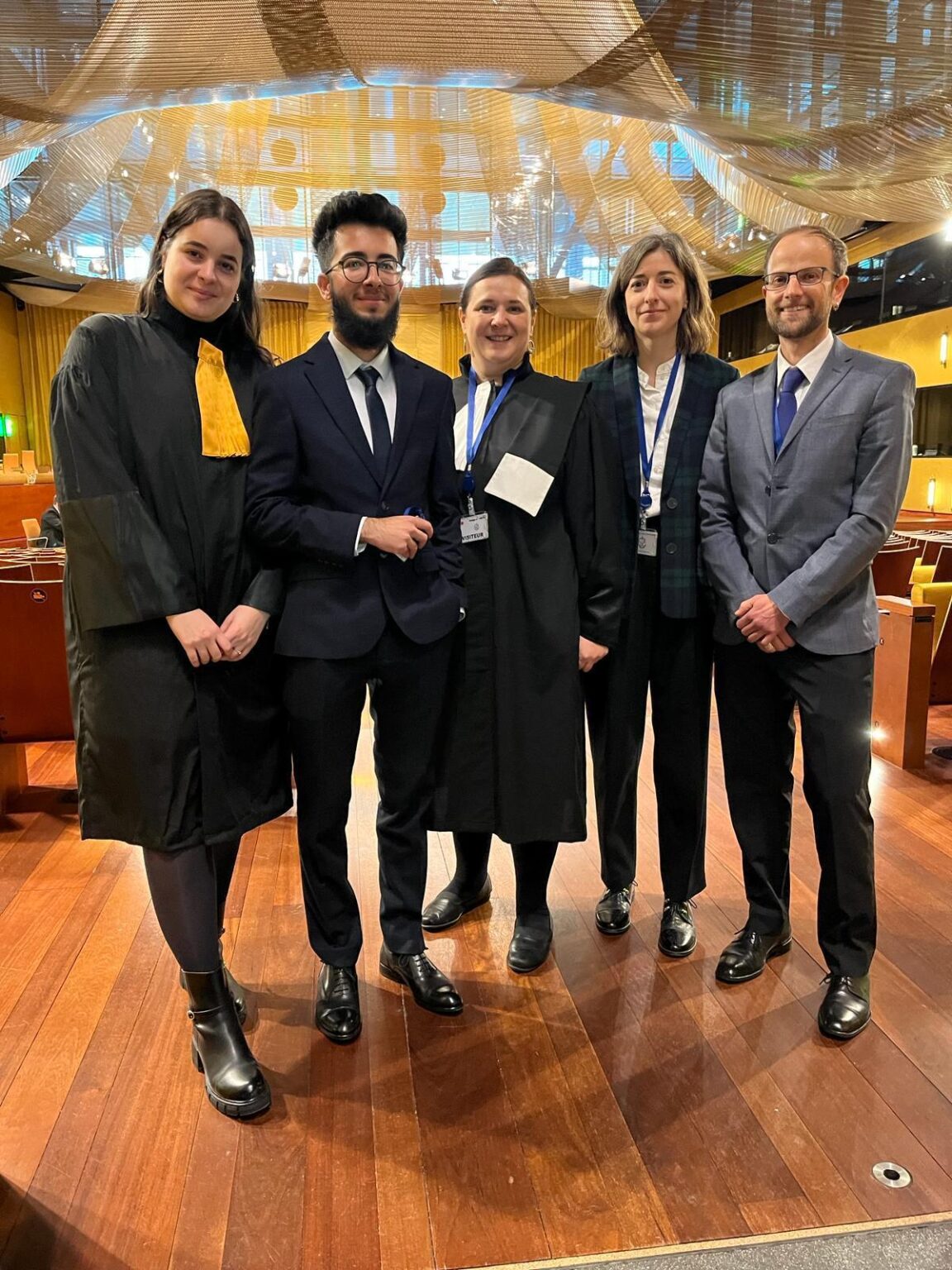
ACCEPT, TGEU and ILGA-Europe welcome today’s decision of the Court of Justice of the EU (CJEU) said that the refusal of an EU Member State to recognise changes of forename and gender acquired in another Member State is contrary to the rights of EU citizens.
The case C-4/23 Mirin concerns Arian Mirzarafie-Ahi, a Romanian trans man, with dual Romanian-British citizenship. Arian began the legal process to change his legal gender and name in 2017 and was granted a gender recognition certificate by UK authorities in 2020. At that time, the UK was in the Brexit transition period and still treated as a Member State of the EU. Subsequently, Romania refused to register the name and legal gender recognition of the applicant obtained in the UK and demanded that he go through Romania’s judicial legal gender recognition procedure. However, the European Court of Human Rights had already found that Romania does not have a procedure for change of name and gender marker that satisfies the standards of the European Convention of Human Rights (ECHR) of being quick, transparent and accessible.
The Romanian court asked the EU’s top court to clarify whether EU law required Romania to recognise another Member State’s decision acknowledging the name and gender marker of the applicant or if it could enforce its own procedures for legal gender recognition. In other areas of law, EU Member States commonly recognise each other’s decisions without further procedures. As such, this case marks a pivotal moment in addressing the mutual recognition of legal gender recognition decisions across EU Member States.
The CJEU Decision
The CJEU ruled in favour of Arian, stating that Romania must recognise the legal gender recognition granted in the UK. The Court emphasised that the refusal to acknowledge changes of forename and gender acquired in another Member State is contrary to the fundamental rights of EU citizens, particularly the principles of free movement and non-discrimination. The Court highlighted that mutual recognition of legal decisions among Member States is essential for upholding the rights of individuals within the EU, and that personal identity, including gender, is a fundamental element of one’s identity, protected under Article 7 of the Charter of Fundamental Rights and Article 8 of the European Convention on Human Rights. This landmark ruling reinforces the obligation of Member States to respect and recognise the legal gender identity of individuals as granted by other EU countries.
Impact
The importance of this judgement extends beyond the applicant’s individual circumstance, and underscores the broader issue faced by trans people whose legal gender recognition in one Member State is not acknowledged elsewhere in the EU, preventing them to travel freely, live, work or study across the EU, or even to vote, as any other citizen is able to. The judgement confirms the principle that rights legally obtained in one Member State must remain valid throughout the EU.
Reactions
According to Arian’s legal counsel, human rights lawyer Iustina Ionescu: “Today’s verdict has shown us that trans people are equal citizens of the European Union. When you have rebuilt a life in another part of the European Union because you are not welcome in your own country, it is normal to ask to be treated with dignity when interacting with the authorities in your home country. The fact that today the Court ruled on the mutual recognition of LGR decisions, no matter how different the procedures are in the Member States, should determine Romanian authorities to also adopt a fast, transparent and accessible national procedure, as requested by existing ECHR jurisprudence.”
TGEU Expert Advisor, Richard Köhler, said: “The CJEU’s ruling in the Mirin case is a monumental victory for trans people in Europe! Arian was forced to navigate a legal nightmare, facing the prospect of conflicting passports and demands for sterilisation to match his legal gender on Romanian and UK documents. Member States must recognise each other’s decisions—this is about equality and dignity. Romania, it’s time to act: Arian deserves his passport now, and the country needs a legal framework for recognising foreign gender identities.”
ILGA-Europe’s Senior Strategic Litigation, Marie-Hélène Ludwig added: “Today’s ruling confirms that without mutual recognition of legal gender recognition from one Member State to another, the right to freedom of movement and residence is not guaranteed for trans people in the EU. It is a great victory that shows the power of strategic litigation in the EU. This judgement will have an immensely positive impact, increasing legal protection for all trans people in the EU, all the more as certain EU countries like Romania still do not provide a legal framework for legal gender recognition conforming with European Court of Human Rights’ standards.”
Romanian NGO ACCEPT is a plaintiff in the case alongside Arian. TGEU and ILGA-Europe supported ACCEPT throughout the case, and joined Arian’s legal team at the Oral Hearing before the CJEU in January 2024.
Joint statement: Welcoming European Court judgement on Poland’s failure to protect same-sex couples married abroad

The European Court of Human Rights has found that Poland breached the right to respect for the family life of two same-sex Polish couples married abroad by failing to recognise their relationships.
ILGA-Europe, the International Federation for Human Rights (FIDH), the Network of European LGBTIQ* Families Associations (NELFA), and the European Commission on Sexual Orientation Law (ECSOL) jointly welcome a ruling released today in the case of Formela and others v. Poland, in which the European Court of Human Rights (ECtHR) found that Poland violated Article 8 (the right to respect for private and family life) of the European Convention on Human Rights.
The case concerned two same-sex Polish couples who married respectively in the UK and in Denmark, and requested Polish authorities to register their marriages contracted abroad. The authorities dismissed the requests, finding that registering their marriage would be contrary to the Polish legal order which allowed only marriage between different-sex couples. This failure resulted in the applicants’ inability to regulate fundamental aspects of their daily lives: they were prevented from taking leave to care for their ill partner; could not extend health insurance to cover their partner; were treated as being unrelated in the field of taxation and could not benefit from an exemption from donation tax granted to next-of-kin or from the right to submit a joint tax declaration.
The Court decided that “by refusing to register the applicants’ marriages under any form and failing to ensure that they have a specific legal framework providing for recognition and protection, the Polish authorities have left them in a legal vacuum and have not provided for the core needs of recognition and protection of same-sex couples in a stable and committed relationship.” The Court added that none of the public interest grounds put forward by the Polish authorities could prevail over the applicants’ interest in having their respective relationships adequately recognised and protected by law.
The Court referred to its landmark judgement of December 2023 in Przybyszewska and others v. Poland finding that Poland had breached Article 8 of the Convention as it had failed to comply with its positive obligation to ensure that same-sex couples had a specific legal framework providing for the recognition and protection of their unions.
Poland is also bound by the 2018 Court of Justice of the European Union Coman landmark ruling requiring EU Member States to treat same-sex couples in the same way as different-sex couples when they exercise freedom of movement rights in the EU.
On 27 December 2023, Poland’s Prime Minister, Donald Tusk, announced that a bill to legalise same-sex unions would be introduced and debated in early 2024. This bill was added to the government’s agenda on 8 July 2024.
Annamaria Linczowska, Advocacy and Litigation Officer at Campaign Against Homophobia (KPH) in Poland said: “Today’s verdict shows once again that through lack of legal protection and recognition of same-sex couples, Poland does not meet the Council of Europe standards of human rights protection. Poland should no longer be one of the few CoE Member States that do not provide recognition for same-sex couples. This judgement is an important argument for implementation of civil unions and marriage equality in Poland. To provide a wide protection of human rights, Poland can not forget about same-sex couples and their safety.”
Read KPH’s press release here.
According to Milena Adamczewska-Stachura, who represents the Love Does Not Exclude Association, involved in the fight towards marriage equality in Poland: “Today’s rulings are a wake-up call for the Polish government, reminding it that the unchanging, complete lack of protection for same-sex couples violates the European Convention on Human Rights. Today’s judgement is an important tool for legal practitioners who fight in the courts for transcription of foreign marriage certificates, and a small but important step towards equality.”
ILGA-Europe, FIDH, NELFA and ECSOL submitted a joint intervention in the case.
According to Senior Strategic Litigation Officer at ILGA-Europe, Marie-Hélène Ludwig: “Today’s judgement is another important step towards due recognition and protection of same-sex couples in Poland, whether they are married abroad or wish to legalise their unions in Poland. It is however unfortunate that the Court considered once again that it was unnecessary to examine the applicants’ complaint under Article 14 of the Convention (non-discrimination).”
Daniel Martinović, President of NELFA, said: “We welcome today’s judgement as a powerful affirmation of the rights of same-sex couples in Poland and beyond. This ruling should serve as a beacon of hope and strength for all queer families, inspiring us to continue striving for a more inclusive and secure future where our relationships are recognised, respected, and protected.”
Helmut Graupner, Co-Coordinator of ECSOL, pointed out that “this is the second time Europe’s highest human rights court made clear that Poland is violating the European Convention of Human Rights by refusing same-gender couples formal recognition of their partnership. It should cause Poland to speedily meet European minimum human rights standards. If not going beyond them, as it had done by completely decriminalising homosexuality as early as 1932 when many other European countries like Great Britain, Germany, Austria, Switzerland, Czechoslovakia, Hungary, Norway and Finland still had a criminal total ban on consensual homosexual relations between adults.”
“Today’s European Court of Human Rights’ ruling sends a strong message to Poland and all Council of Europe member states that they must urgently address the persistent discrimination against same-sex couples and grant them equal rights with heterosexual couples’ concluded Elena Crespi, Head of the Europe Programme at FIDH. “The judgement also offers the Polish government a chance to demonstrate its commitment to implementing European court rulings, as part of its efforts to restore the rule of law and align Poland with international standards’.
Joint statement: EU Court of Justice Advocate General calls on Hungary to correct trans refugee’s gender marker in national registries
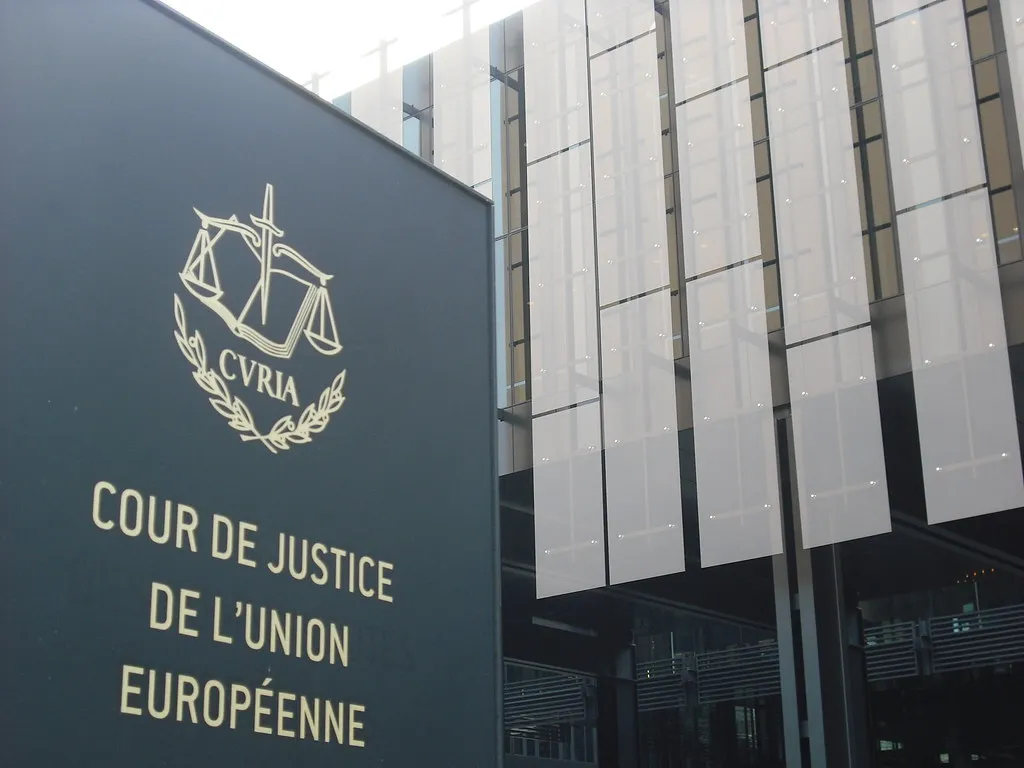
Háttér Society, ILGA-Europe and TGEU welcome an opinion from the Advocate General of the Court of Justice of the European Union stating that Hungarian immigration authorities must correct the gender marker of a trans person in its national immigration registries upon request.
Today, the Advocate General of the Court of Justice of the European Union (CJEU) has issued an opinion on the case of Deldits (C-247/23) calling on Hungary to correct the gender marker of the applicant in the national immigration registry upon request.
The opinion specifically relates to the case of a trans refugee in Hungary who has been denied legal gender recognition (LGR) in the asylum register since 2021. Represented by Háttér Society and the Hungarian Helsinki Committee, the complainant, who was granted refugee status in Hungary in 2014, has sought the rectification of his gender marker and name (as it reflected his sex at birth) on the national registry under Article 16 of the EU’s General Data Protection Regulation (GDPR).
This case raises crucial questions for the CJEU: whether the GDPR mandates the rectification of the gender marker on national registries upon request, and if so, does this request require evidence? If so, does it need to include proof of surgical intervention?
Advocate General Collins stated that following Article 16 GDPR in conjunction with Article 5(1)(d) GDPR Hungarian authorities need to rectify the gender of the applicant, whose data they recorded inaccurately in the first place. He also pronounced that while evidence might be requested, proof of surgical intervention cannot be required.
This case marks a pivotal moment in the ongoing battle for the rights of trans people in Hungary. The 2018 Constitutional Court decision and the 2020 European Court of Human Rights judgment affirmed the right of trans refugees to legal gender recognition. Nonetheless, the Hungarian legislature has not implemented the necessary changes. Hungarian citizens have not had access to LGR since May 2020, whilst refugees never had access to such recognition.
Eszter Polgári, Director of the Legal Program at Háttér Society, emphasised the potential implications of a ruling in line with the opinion: “The preliminary ruling reflecting the Advocate General’s opinion might have an impact beyond the specific case, as a positive decision of the Court of Justice of the European Union will hopefully force the legislator to reconsider the procedure on legal gender recognition also for Hungarian citizens, and bring it in line with international human rights and EU law, including the relevant provisions of the GDPR.”
TGEU Expert Advisor, Richard Köhler, adds: “Respect and recognition matter for everyone. For many trans people it is a significant step to living fulfilling lives. The Advocate General’s opinion is a substantial move towards EU Member States finally recognising their responsibility to introduce proper legal gender recognition procedures for all trans people.”
ILGA-Europe Senior Strategic Litigation Officer, Marie-Hélène Ludwig, said: “This opinion is a significant development for the rights of trans people in the EU, including refugees, particularly in countries still deprived of any legal framework for legal gender recognition, in breach of their international obligations. We are looking forward to the judgment confirming Member States’ obligation to record correct gender markers in all national registries.”
The Advocate General at the Court of Justice of the European Union offers independent, expert legal opinions on cases to guide the judges in making their final decisions.
The CJEU’s decision is expected at the beginning of 2025. It holds significant potential to influence the legal protections for trans people within Hungary and across the EU.
ILGA-Europe and TGEU – Trans Europe and Central Asia are providing support to Háttér Society in this case.
Interview with Denitsa Lyubenova: Bulgaria’s LGBTI crisis and what the international community can do to help

Amidst growing oppression, Bulgarian activists rally for LGBTI rights and call for European solidarity
Bulgaria has recently passed a draconian law banning “LGBTI propaganda” in schools, echoing similar legislation in Russia and Hungary. This has sparked widespread fear and uncertainty within the LGBTI community. To shed light on the situation, we spoke with Denitsa Lyubenova from Deystvie, an organisation at the forefront of the fight for LGBTI rights in Bulgaria.
A community in shock and resilience
When the anti-LGBTI law was swiftly passed, the shockwaves were immediate. “It happened so quickly,” Denitsa recounted. “Within just one day, everything changed. The environment in the country turned hostile almost overnight.” The sudden enactment of the law, coupled with the overwhelmingly negative media coverage, has left the community reeling. “People are scared, and there’s a deep sense of hopelessness,” she explained. Many activists, who have spent years pushing for incremental progress, now find themselves grappling with a wave of despair. “Everything we’ve fought for feels like it’s been shattered overnight,” Denitsa shared.
Despite the grim outlook, the resilience of Bulgaria’s LGBTI activists is evident. In response to the law, organisations and activists have mobilised quickly, organising protests and petitions, and rallying international support. Denitsa emphasised the critical role that international bodies like the European Parliament and the European Commission must play in exerting political pressure on the Bulgarian government.
The legal battle ahead
One of the most pressing challenges for the LGBTI community is the legal harassment they face. Denitsa’s organisation, along with others, has formed a legal team comprising 16 professionals, including university professors and community members, to strategise their fight against the law. “We’ve built a strong team to brainstorm ways to fight this law and any future ones,” she explained. This team is not just focused on challenging the current legislation but also on preparing for future legal battles.
The situation is particularly dire for organisations like Single Step, which has been targeted with threats to revoke its license to work with children. Denitsa herself has been subjected to police inquiries and investigations, a clear indication of the increasing pressure on visible LGBTI activists. “We’ve already had to visit the police several times due to investigations into our work,” she shared. Despite the severity of these threats, Denitsa remains defiant, “We’ve been threatened before, but it hasn’t stopped us, and it won’t stop us now.”
Personal toll on activists
The intensity of the situation is taking a personal toll on activists. Denitsa spoke candidly about the strain of being on the frontlines, acknowledging that the past 20 days have been particularly overwhelming. “It’s emergency time,” she said, noting that self-care has become a rare luxury. Despite the pressures, she finds solace in moments of disconnect, like escaping to the mountains, though such moments have been scarce recently. “My partner is a psychologist, which helps,” Denitsa laughed about with a hint of relief. “But the situation demands so much attention that finding time to step away has been nearly impossible.”
Overlooked aspects of the crisis
One aspect that shouldn’t be overlooked in this situation is Bulgaria’s ongoing political instability. The country has seen six elections in four years, creating an environment where far-right forces can push through conservative agendas with alarming ease. “This political instability gives far-right groups a golden opportunity to push their conservative laws and suppress civil society,” Denitsa warned. She stressed the importance of international collaboration to counteract this political crisis “We need to fight this together, on an international level, to prevent further damage.”
Call to action: Support Bulgarian LGBTI activists
Denitsa’s message to European LGBTI organisations is clear: the Bulgarian community needs your support. She urges activists across Europe to sign the petition launched by Deystvie and their partners, and to help raise awareness about the situation in Bulgaria. “We’re providing pro bono legal support to teachers and school directors who may be sanctioned under this law,” she explained. That is why financial support is also crucial, as organisations like Deystvie prepare for a prolonged legal and advocacy battle. Contributions can be made directly through their website, where details for donations are provided.
This is a critical moment for the LGBTI community in Bulgaria. While the challenges are immense, the solidarity and support from across Europe can make a significant difference. As Denitsa aptly put it, “We have to be prepared for the long run. We don’t know when this crisis will end, but we’re not giving up.”
Joint statement on Italian Constitutional Court ruling on non-binary & trans persons’ rights

ILGA-Europe and TGEU welcome a judgement of the Italian Constitutional Court finding that non-binary peoples’ rights are protected under the Italian Constitution
In a judgment published last week, the Italian Constitutional Court found that non-binary peoples’’ rights are protected under the principles of social identity, equality of citizens and the right to health as guaranteed by the Italian Constitution. The Court did not, however, recognise a right to be registered as non-binary in Italian civil registries. The Court also repealed the legislative provision requiring trans people to obtain a court’s authorisation prior to accessing transition-related surgery.
ILGA-Europe and Transgender Europe (TGEU) welcome this decision but regret that the Court failed to recognise a right to a third legal gender option in Italian registries and identity documents. Our organisations submitted an amicus curiae in the case, expressing that the introduction of a third legal gender option protects the rights to self-determination, dignity and private life of many trans people, intersex people and people of other gender identities.
The decision follows a referral by a regional court on the case of a non-binary Italian citizen, raising two questions of constitutionality to the Constitutional Court.
Missed opportunity to recognise a third legal gender option in the Italian system
The first question concerned the current lack of a third legal gender option in Italian registries and identity documents.
The applicant argued that the failure to recognise non-binary gender identity harms individuals’ social identity (Article 2 of the Constitution) and equality before the law (Article 3 of the Constitution), since legal gender recognition is allowed only to those whose gender identity falls within the binary. The Court also examined a violation of the fundamental right to health under Article 32 of the Constitution, and whether the lack of recognition of non-binary gender identity compromises psychophysical wellbeing.
The Constitutional Court declared this question inadmissible, citing the wide repercussions that the introduction of a third legal gender option would have on various sectors of the legal system, which would necessitate a systemic legislative reform of the system and of the many institutions currently operating under the gender-binary logic.
However, the Court brought this question to the attention of the legislator. It noted that the lack of a third legal gender option in the Italian system can lead to unequal treatment and/or can compromise the psychophysical wellbeing of concerned individuals, which can in turn raise issues around the respect for social dignity and protection of health under Articles 3 and 32 of the Constitution.
The applicant, as well as ILGA-Europe and TGEU – Trans Europe and Central Asia in their third-party intervention, recalled that non-binary gender identity has now been recognised in numerous legal systems across Europe. Iceland and Germany are leading the way and Denmark and Malta partially acknowledge non-binary identities) [1]. A gender marker option in official registries and documents other than male or female (unspecified or third gender marker option) is an important issue for a growing number of people in trans and intersex communities. The EU Fundamental Rights Agency (FRA) found that nearly every second person in the trans community identifies outside of the gender binary, that is not (entirely) identifying as male or female [2].
The Italian Constitutional Court ruling was highly anticipated in this respect, and it could have triggered legislative changes inspiring other countries to follow suit and potentially transforming the landscape of non-binary rights in Europe.
Unconstitutionality of the obligation for trans and non-binary people to obtain judicial authorisation to access transition-related surgeries
The second question concerned the obligation in Legislative Decree no. 150 of 2011 for trans and non-binary people to obtain a court decision to be authorised to access transition-related surgical interventions.
The applicant argued that such an obligation violates the fundamental right to self-determination (Article 2 of the Constitution) and the right to equality before the law (Article 3), since requiring judicial authorisation for a medical procedure that is lawful is unreasonable. Such a requirement is also discriminatory, because other similar interventions not linked to gender identity, are left exclusively to medical judgment and to the patient’s consent.
The Court ruled that such a requirement was unconstitutional. It reiterated that for the purpose of legal gender recognition, it is necessary and sufficient to ascertain the “objective transition of gender identity” which can be accomplished through hormonal treatments and psychological-behavioural support, without a surgical intervention. As such, according to the Court, the blanket requirement for judicial authorisation before surgical interventions is manifestly unreasonable and unnecessary.
Notably, the Constitutional Court referenced the changing jurisprudential framework in Italy on this issue, highlighting the growing Italian case-law authorising surgery at the same time as ordering legal gender recognition.
Further to this ruling, trans and non-binary people in Italy will be able to obtain surgeries as part of their trans-specific healthcare without a judicial decision, a requirement that often led to arbitrary and lengthy procedures.
ILGA-Europe
TGEU (Trans Europe and Central Asia)
- As pointed out by the applicant, the EU itself provides standard forms containing three gender options Non-Binary gender identity is recognised under Regulation (EU) 2016/1191 of the European Parliament and the Council of 6 July 2016 on the free movement of citizens on promoting the free movement of citizens by simplifying the requirements for presenting certain public documents in the European Union and amending Regulation (EU) No 1024/2012
- Russell, Sanders, Watkins, Diving into the FRA LGBTI II Survey Data: Trans and non-binary briefing’, p. 3, available at: https://tgeu.org/intersecting-oppressions-trans-people-in-europe/
Latvia failed to protect human rights of victim of a homophobic attack, european Court finds

The European Court of Human rights has made a judgement in a case where the Latvian authorities declined to prosecute an anti-LGBTI attack as a hate-motivated offence
Earlier this month, in the case of Hanovs v. Latvia taken by the victim of a homophobic assault, the European Court found a violation of Article 3 of the European Convention on Human Rights (prohibition of torture and inhuman or degrading treatment) and Article 8 (right to private and family life), together with Article 14 (prohibition of discrimination).
The case concerned the attack on the applicant and his partner, a gay couple, when they were walking in Riga. The two perpetrators of the attack shouted homophobic slurs and physically assaulted the applicant. The applicant avoided further violence by fleeing into a shop and securing the door. The police and prosecutors declined to prosecute the attack on the applicant as a hate-motivated offence.
The Court found that the authorities had failed to offer adequate protection in respect of the individual applicant’s dignity and private life by ensuring effective prosecution of the attack against him, and to effectively investigate the hate motive behind the attack.
Importantly, the Court considered that “attacks on LGBTI individuals, triggered by expressions of affection constitute an affront to human dignity” so that the attack “not only undermine[d] the victims’ physical safety but also their emotional and psychological well-being, turning a moment of intimacy into one of fear and trauma.”
Furthermore, the Court ruled that such attacks “humiliate and debase the victims, conveying a message of inferiority of their identities and expressions.” As such, the case fell within the scope of Article 3 of the Convention (inhumane and degrading treatment).
The Court also pointed out the crucial importance of addressing impunity in cases of hate crimes as “failure to address such incidents can normalise hostility towards LGBTI individuals, perpetuate a culture of intolerance and discrimination and encourage further acts of a similar nature.”
Welcoming the judgement, ILGA-Europe’s Senior Strategic Litigation Officer, Marie-Hélène Ludwig said: “This judgment sends a strong signal in recalling State’s positive obligations in effectively addressing hate crimes against LGBTI people in Latvia and across Council of Europe member States amidst the rise in hate incidents in a number of countries.”
The judgment can be accessed here.
Joint Statement: Human rights groups regret outcome of European Court ruling on France’s criminalisation policies in relation to sex work

On 25 July, the European Court of Human Rights (ECtHR) ruled in M.A. and Others v. France that there has been no violation of Article 8 of the European Convention on Human Rights.
In December 2019, more than 250 sex workers took their case to the European Court of Human Rights to challenge whether the criminalisation of clients was compatible with their fundamental rights: the freedom to pursue a professional activity, the right to personal autonomy and sexual freedom, and the rights to physical integrity and life.
With its ruling that there had been no violation of Article 8, the court refused to affirm the human rights of sex workers.
The Court nonetheless stated that national authorities have a duty to keep the approach they decided to adopt under constant supervision, especially when the approach was based on a general and absolute prohibition of the purchase of sexual acts. This, the Court said, is to ensure that the approach can be amended depending on the evolution of international standards and European society in this field, and the consequences of the implementation of this legislation.
With this joint statement, our organisations express our deep solidarity with the 261 sex workers, most of them migrants of different genders, who, despite their precarious situation, had the courage to unite and challenge the French state to oppose a law that puts their safety and health at risk.
Our organisations are leading civil society networks and human rights organisations. We have decades of experience and expertise in addressing women’s rights and gender equality, human rights, sexual and reproductive health and rights, HIV, harm reduction, the rights of LGBTI people, digital rights, human trafficking, migration, racial justice and criminal justice. All ten organisations have come to the same conclusion: the criminalisation of the purchase of sex or of any other aspect of sex work does not protect sex workers’rights. It also fails to address the root causes of the very serious issue of trafficking and forced labour. From our expertise we know that the overuse of criminal laws to solve societal problems actually harms those most vulnerable in our societies.
Criminalisation policies hinder meaningful inclusion and consultation with sex workers and reinforce social stigma. Labelling all sex workers as victims is patronising and adds to the barriers to accessing community-led health and violence prevention programmes.
We are appalled by the fact that such policies are promoted and celebrated by some so-called feminist organisations. Carceral feminism, which sees criminal law as a tool for achieving gender equality, harms those who are most marginalised in our society and disproportionately impacted by racial profiling, police brutality and over-surveillance.
We are deeply disappointed by this decision of the European Court of Human Rights. Regardless of this judgement, our organisations stand in solidarity with sex workers and will continue to advocate for the full decriminalisation of sex work.
It is only by adopting a human rights-based approach, decriminalising all aspects of sex work, and meaningfully including sex workers and sex workers’ human rights defenders in decision-making, that people selling sex, as well as victims of sexual exploitation, can be protected and theviolations of their rights can be addressed.
Signatories:
Equinox Initiative for Racial Justice
ILGA-Europe
European Sex Workers Rights Alliance (ESWA)
Global Alliance Against Traffic in Women
AIDS Action Europe
Trans Europe and Central Asia (TGEU)
IGLYO
La Strada International
PICUM
European AIDS Treatment Group
Trans woman should have been allowed access to hormone therapy in prison, says European Court

The European Court of Human Rights has found that Poland violated Article 8 of the European Convention on Human Rights, protecting the right to private and family life, when a trans woman was denied access to hormone therapy in prison
On July 11, the European Court of Human Rights (ECHR) passed judgement in a case concerning the refusal by Polish authorities to allow a trans woman to continue hormone replacement therapy in prison, although she had already undergone such therapy for nearly one and a half years in two previous prisons.
The Court found that the authorities had failed to justify their refusal on any reasonable grounds, and did not provide sufficient explanations as to why the treatment might have been detrimental to the applicant’s health.
To the contrary, the Court pointed out that hormone replacement therapy had beneficial effects for the applicant’s physical and mental health and that the prescribing doctors had considered it necessary and urgent for the applicant to access such care. As such, the Court concluded that the Polish authorities had failed to strike a fair balance between the competing interests at stake, especially in light of the need to protect the applicant’s health as well as her interest in continuing hormone replacement therapy.
Transgender Europe (TGEU) intervened on this case. The judgement can be downloaded here.
Joint Statement welcoming CJEU Advocate General on collection of gender binary civil titles

ILGA-Europe, TGEU and Association Mousse welcome the opinion of the Advocate General of the Court of Justice of the European Union confirming that the French national railway company, SNCF should stop collecting its passengers’ civil titles.
The opinion concerns a case initiated by the Mousse Association, representing 64 individuals, against France’s national state-owned railway company (SNCF) practice of forcing passengers to choose between the civil titles ‘Mr’ or ‘Ms’ when purchasing train tickets. The train company does not offer a third option.
The case relies on the General Data Protection Regulation (GDPR)’s principles of data minimisation and accuracy, as well as the fundamental EU law principle of non-discrimination.
Yesterday, CJEU Advocate General Maciej Szpunar said that it is not “necessary” under GDPR and that it is therefore unlawful for the SNCF to collect individuals’ civil titles. The Advocate General dismissed the SNCF’s arguments that the data collection in question is necessary to adapt its commercial communication or transport services depending on the passengers’ civil titles.
The Advocate General also agreed with Association Mousse that processing data on civil titles creates a risk of discrimination on the grounds of gender identity for trans and non-binary people notably as other States legally recognise non-binary identities.
As such, the Advocate General’s reasoning represents a positive step forward for the rights of non-binary people, but also more broadly, for LGBTI people who do not identify within the gender binary.
As the CJEU will now deliberate on this case, our organisations hope that the judgment will align with the opinion of the Advocate General and put an end to the misgendering and discrimination faced by non-binary people who are constantly forced to choose in their everyday lives between two options that do not correspond to their identity. Also, binary trans people, whose identity documents do not match their gender identity, will benefit from fewer mandatory forms asking for a gender marker, when it is not necessary to the service or contract at hand.
Therefore, a positive judgment would set a significant precedent for the inclusion of all gender identities in many areas of life, by requiring forms without any reference to gender markers or with inclusive options. It doesn’t take anything away from anyone, but it helps marginalised communities a lot.
Almost two-thirds (64 per cent) of trans respondents felt discriminated against in the year before the survey, followed by more than half (51 per cent) of non-binary and gender-diverse respondents, where every second respondent experienced discrimination in the same period, found the EU Fundamental Rights Agency LGBTI survey 2023. The same survey also found that 15 per cent of non-binary and 35 per cent of trans people said they experienced discrimination when they had to show their ID. In contrast, only 1% of cisgender endosex respondents reported such issues. Non-binary people make up the largest compound (65 per cent) of the trans community
ILGA-Europe and TGEU are providing support to Association Mousse and its lawyers, Etienne Deshoulières from Deshoulières Avocats and Johan Heymans, Yasmina El Kaddouri and Delphine Holemans from VS Advocaten, in this case.
ILGA-Europe
TGEU (Trans Europe and Central Asia)
Read the Advocate General’s opinion here.